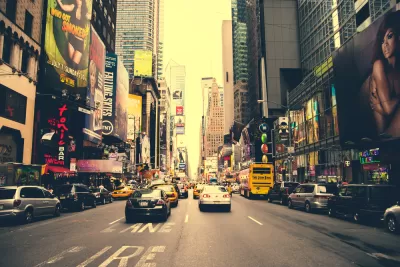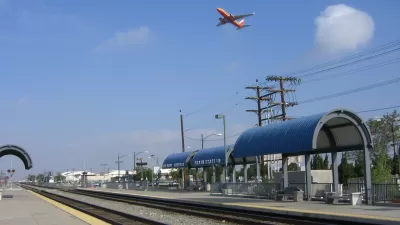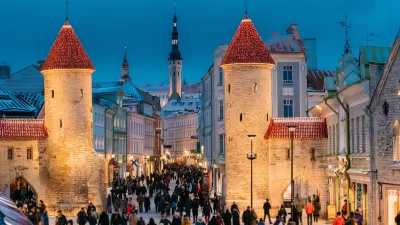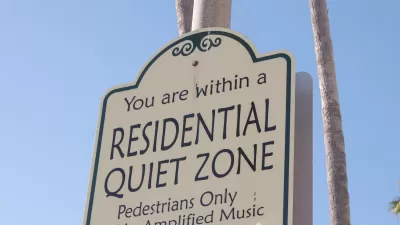As more research demonstrates the negative health and environmental impacts of excessive traffic noise, the New York state legislature has passed a bill prohibiting the sale of muffler modification devices.

Loud driving, argues Danny Pearlstein in Streetsblog NYC, "isn’t just a quality-of-life issue" but "a growing public-health threat demanding a multifaceted, whole-of-government solution."
"After the eerie quiet last spring, loud drivers with little else to do have turned up the volume to what for many listeners is a shocking degree." But far from just being a nuisance, "[n]ighttime noise disrupts sleep, which makes it harder to learn at school and be productive at work. Daytime noise drowns out teachers’ lessons, studying, and homework." Excessive traffic noise levels can also lead to "high blood pressure, heart attack and Type II diabetes leading to premature death." Pearlstein goes on to cite the higher amounts of air pollution and carbon emissions caused by modified vehicles and argues that loud driving "makes a sport of consuming fossil fuels."
Now, "[a]fter neighborhood outcry all across New York, public officials vow action. Bay Ridge State Sen. Andrew Gounardes crafted the SLEEP Act to better equip police officers to measure sound levels and impose penalties that deter loud driving." In a tweet, Sen. Gounardes said the bill would "curtail the dangerous & obnoxious noise pollution that has plagued our community."
Pearlstein recommends other actions including "engineering solutions to speeding," the reclamation of public space from private vehicles, and a crackdown on the sellers of illegal modifications and vehicles.
FULL STORY: Loud Driving Threatens Our Health

Manufactured Crisis: Losing the Nation’s Largest Source of Unsubsidized Affordable Housing
Manufactured housing communities have long been an affordable housing option for millions of people living in the U.S., but that affordability is disappearing rapidly. How did we get here?

Americans May Be Stuck — But Why?
Americans are moving a lot less than they once did, and that is a problem. While Yoni Applebaum, in his highly-publicized article Stuck, gets the reasons badly wrong, it's still important to ask: why are we moving so much less than before?

Using Old Oil and Gas Wells for Green Energy Storage
Penn State researchers have found that repurposing abandoned oil and gas wells for geothermal-assisted compressed-air energy storage can boost efficiency, reduce environmental risks, and support clean energy and job transitions.

Minneapolis Bans Rent-Setting Software
Four cities have enacted restrictions on algorithmic software that can inflate rent costs.

Oakland to Add 244 New EV Chargers
Oakland plans to launch its new charging network at eight locations by the end of 2025.

Jane Goodall Inspires with Message of Hope, Resilience, and Environmental Action
Speaking in Pasadena, Jane Goodall offered a hopeful and inspirational message, urging global compassion, environmental responsibility, and the power of individual action to shape a better future.
Urban Design for Planners 1: Software Tools
This six-course series explores essential urban design concepts using open source software and equips planners with the tools they need to participate fully in the urban design process.
Planning for Universal Design
Learn the tools for implementing Universal Design in planning regulations.
Heyer Gruel & Associates PA
City of Moreno Valley
Institute for Housing and Urban Development Studies (IHS)
City of Grandview
Harvard GSD Executive Education
Salt Lake City
NYU Wagner Graduate School of Public Service
City of Cambridge, Maryland





























